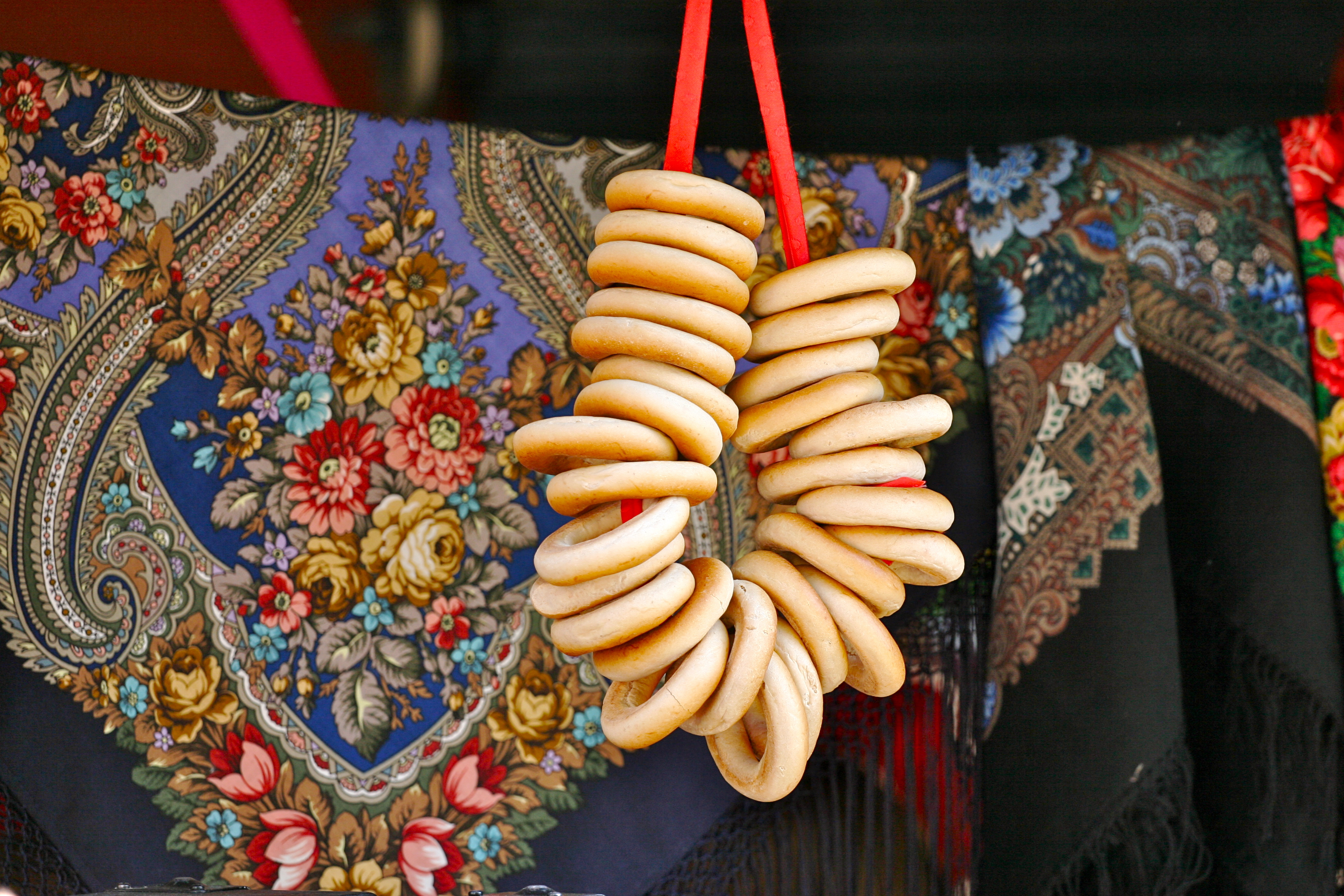Question from an English speaking father and English, Danish and Norwegian speaking mother on how to pass on the two non-native languages - Danish and Norwegian - to their soon-to-be-born child.
Question:
Hi there,
I am so glad I found your website! I have just had a great read and found it really useful. I wanted to ask your advice about my current situation, and how best to proceed.
I am 11 weeks pregnant, and am lucky enough to be a very gifted linguist. I lived in Norway for a summer as a 12 year old, after teaching myself the language from a book (neglected child, left to own devices, very inquisitive, and I was quite good at entertaining myself in an educational way rather than being naughty and running riot!) When I spent that summer in Norway my language-lessons before the trip prepared me to do really well in the 6 weeks I lived with a friend's family, and I picked up the local accent. I am now 31, still have that accent, and did all the talking when we holidayed there in July this year - perfectly understood by everyone there. So I guess I "still have it". :)
In the last two years I have also learned Danish. I am not as proficient, I feel, in Danish - I just "do" Norwegian without thinking, and sometimes mix up words by accident when speaking Danish, and Danes always ask me if I am actually Norwegian, because my accent sticks out massively. That said, my Danish is much improved and I have a few books I can read in both languages to get myself even better in both in the coming months. I also still have the original Norwegian book I learned from, so I can brush up on grammar etc in no time.
I have been online and looked for children's books in both languages, and as expensive as they are, I am able to get some kids' books shipped out. I also have a Danish friend who is able to help me out by perusing his local thrift stores for me. I also watch a lot of Danish TV/box sets, and can work on my spoken Danish over time, so I sound less like a Norwegian imposter ;)
I adore both languages, but Norwegian seems to be my stronger, given that I learned it rather young, and have had it "sitting in my head for the last two decades". Living in the UK, children learn French, Spanish and/or German at school, so as well as I can speak those three, I want to avoid them, as it is a skill any children of ours will learn anyway at some point in their schooling. My husband is 100% supportive of raising bilingual/trilingual children, and as he loved Norway when we visited this year, and he saw me do the talking first hand, he's happy with that. My love of Danish keeps nagging at me, and my issue is how to go about trying both. My husband will speak English to our children, but with Norwegian and Danish being so similar, and both coming out of my mouth, I don't know if it is best to stick with one, or split my time between the two.
Any advice would be greatly appreciated and welcomed! Before I go buying the wrong kind of books if I shouldn't be getting both! :)
Thank you very much,
Sarah and Dave, UK
Answer:
Hi Sarah,
Congratulations on your pregnancy!
I think it is wonderful that you and your husband would like to raise a bilingual or even a trilingual child.
I am impressed by your linguistic abilities. There are not many teenagers, who are able to learn a language on their own from books as you did.
I am sure the qualities that helped you to learn Norwegian and Danish will also help you to pass on these languages to your child.
Passing on a language takes a lot of effort and commitment on parents side, especially when they are alone on this journey. Since you were not raised bilingually from birth and do not have a deep attachment to those languages, I would advise you to start by picking one language first , either Danish or Norwegian, and stick to it for several years ( about 3) until your child masters speaking in it. Then add a third language.
I would choose Danish as a language to start with first because you have a friend who can help you and also because you need more time to work on your pronunciation ( as you say). When you add a second language, you will not have time to work on it, but you could work on your vocabulary though. This way you will be able to master both languages while teaching them to your child. Learning together is a lot of fun. It would be great if you could involve your husband too!
From what you wrote it is not clear if you are willing to switch to Norwegian or Danish completely following one parent one language (OPOL) strategy , or you’d like to also speak English to your child. I’d like to note that the full language immersion brings best results and it would be better to stick to minority language only.
When your child is born you will feel overwhelmed with emotions. You will recollect your childhood memories, the children's songs and lullabies that your parents sung you. Do not stop yourself from singing them to your child. Just find some lullabies in Danish / Norwegian and sing them too. Singing is good for developing early phonemic awareness.
It is good that you already checked for the second language books availability. Try to locate other Danish or Norwegian language speakers in your area. If you do not find anyone in your town, consider looking for communities in a big city nearby. Check if someone offers private lessons or if there is a weekend language school. This will give you a peace of mind that you can get a support if you ever need it.
Other questions you would need to consider:
How would you handle languages “at the table”? What language would you speak to your bilingual child when you are all together? Read about my experience to give you an idea.
What language would you speak to your bilingual child in public? You will find my answer in the same named article: What language should I speak to my child in public? - Multilingual parent dilemma.
You should also consider giving your child an opportunity to play with Danish speaking peers. Best would be to find someone living nearby. If not possible, you could plan a relaxing vacation in Denmark/ Norway , where you could visit interactive museums and playgrounds.
Read also the 9 steps of raising a bilingual child successfully, where I cover most important points and give some helpful tips.
Good luck on your multilingual journey!
Congratulations on your pregnancy!
I think it is wonderful that you and your husband would like to raise a bilingual or even a trilingual child.
I am impressed by your linguistic abilities. There are not many teenagers, who are able to learn a language on their own from books as you did.
I am sure the qualities that helped you to learn Norwegian and Danish will also help you to pass on these languages to your child.
Passing on a language takes a lot of effort and commitment on parents side, especially when they are alone on this journey. Since you were not raised bilingually from birth and do not have a deep attachment to those languages, I would advise you to start by picking one language first , either Danish or Norwegian, and stick to it for several years ( about 3) until your child masters speaking in it. Then add a third language.
I would choose Danish as a language to start with first because you have a friend who can help you and also because you need more time to work on your pronunciation ( as you say). When you add a second language, you will not have time to work on it, but you could work on your vocabulary though. This way you will be able to master both languages while teaching them to your child. Learning together is a lot of fun. It would be great if you could involve your husband too!
From what you wrote it is not clear if you are willing to switch to Norwegian or Danish completely following one parent one language (OPOL) strategy , or you’d like to also speak English to your child. I’d like to note that the full language immersion brings best results and it would be better to stick to minority language only.
When your child is born you will feel overwhelmed with emotions. You will recollect your childhood memories, the children's songs and lullabies that your parents sung you. Do not stop yourself from singing them to your child. Just find some lullabies in Danish / Norwegian and sing them too. Singing is good for developing early phonemic awareness.
It is good that you already checked for the second language books availability. Try to locate other Danish or Norwegian language speakers in your area. If you do not find anyone in your town, consider looking for communities in a big city nearby. Check if someone offers private lessons or if there is a weekend language school. This will give you a peace of mind that you can get a support if you ever need it.
Other questions you would need to consider:
How would you handle languages “at the table”? What language would you speak to your bilingual child when you are all together? Read about my experience to give you an idea.
What language would you speak to your bilingual child in public? You will find my answer in the same named article: What language should I speak to my child in public? - Multilingual parent dilemma.
You should also consider giving your child an opportunity to play with Danish speaking peers. Best would be to find someone living nearby. If not possible, you could plan a relaxing vacation in Denmark/ Norway , where you could visit interactive museums and playgrounds.
Read also the 9 steps of raising a bilingual child successfully, where I cover most important points and give some helpful tips.
Good luck on your multilingual journey!
Best Regards,
Galina
Are you bringing up a bilingual or multilingual child or are you a parent to be and have a question?
Read other parents questions and my answers in Multilingual Family Q&A Series.
Feel free to contact me. Use "Q&A" in the subject line.
For privacy protection I can change your name and omit some personal details, if you wish.
Are you a multilingual family and looking for a playdate in your language? Click here to find it now!
You might also like:
Non-native Speaker Raising Bilingual Children. Interview with Christine Jernigan, the author of "Family Language Learning" book.
Multilingual Family Language Strategies.
Bilingualism and speech delay. How can you help?
Exposing our kids to languages - Learn about our family language strategy and read great questions and answers in the article's comments.
7 facts that can determine the language spoken between multilingual siblings.
How to read to a toddler? Advice for parents of monolingual, bilingual or multilingual children.
Advantages and disadvantages of raising a trilingual child.



























